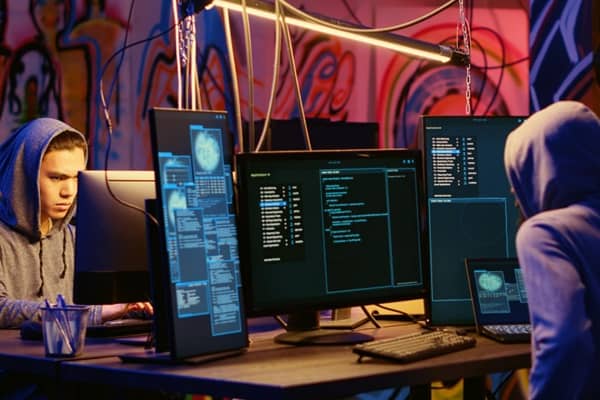Cybersecurity has become one of the greatest concerns since the expansion of tech worldwide, and it has found a worthy place in pop culture, which influences our comprehension and understanding of digital threats. There are various plots in movies, television shows, books, or other forms of entertainment where hackers, cyberattacks, and digital vulnerabilities appear. These depictions not only entertain but also define our notion of the online world and our responsibility to protect ourselves from digital threats.
Positive role of pop culture
Although pop culture has darker aspects, it does find ways to initiate cybersecurity awareness. Films and television series that depict the repercussions of cyberattacks and the menace associated with digital malice raise meaningful discussions over privacy, protection of data, and digital security. According to PIA’s blog post, last summer, Netflix produced a very thought-provoking series called What’s Next? The Future with Bill Gates. Some of the things discussed in this series include cybersecurity. The series pointed out that the more the technology evolves, the tighter its security needs to be.
The role of hackers in popular culture
A highly popular representation of culture in cybersecurity is hackers. From Hackers with Jonny Lee Miller to Mr. Robot (2015-2019), hackers are portrayed as anti-heroes or modern-day freedom fighters, always ready to uncover hidden corporate fraud or confront authoritarian regimes. Such a character is usually very skilled and resourceful and uses such skills in the fight against malpractice by corporations or governments. They are portrayed as heroes who, with all their illicit activities, are lovers of justice who rob the digital worlds of undeserving riches, akin to real-life “Robin Hoods.”
That idealized hacking undoubtedly has made the concept of cybersecurity not at all dull for audiences, but it does simplify the complexities of what cyberattacks are and might be. In reality, systems hacking is much more than the ‘stories’ these films tell where hackers easily succeed for the sake of a greater cause. It involves intricate techniques, ethical dilemmas, and legal repercussions. The greater danger of portraying hackers as rebels fighting for good is that it might blur the edges between such acts, which are called white-hat hacking and malicious hacking or black-hat hacking, and thus, people cannot clearly differentiate the consequences of their unauthorized digital activities.
Challenges and misconceptions
Private Internet Access (PIA) research shows that while the way cybersecurity is portrayed in pop culture has its good sides, it also comes with quite a few obstacles and misconceptions that may mislead public perception of cybersecurity. First, the most important problem related to simplifying hacking is that it is too easy. In movies and television shows, hackers always seem to break through secure systems within seconds with only a few keystrokes or flashy code. The above representation might convey a wrong impression that it is a light or brainy activity to carry out a cyberattack.
In reality, hacking is much more than that. Cybercrooks often exploit weaknesses in the software, use social engineering, and take advantage of human error rather than the high-tech skills shown in movies. Indeed, many cyberattacks have little to do with super-genius hackers: often enough, they can be attributed to simple security slips, a weak password, unmaintained software, or unencrypted data.
The second major issue is the glamorization of hacking itself. In pop culture, for instance, characters hack into systems to reveal hidden truths or participate in the fight against corruption. Still, hacking without authorization is strictly against the law and can cause undue harm. Portrayals of hackers as rebels tend to overlook the ethical and legal consequences of unauthorized access to computer systems. This leads people to believe that hacking can be justified if its intention serves a greater purpose.
Public pop culture inspires the next generation of cybersecurity professionals. This is important because interest in cybersecurity is growing, and more people may be motivated enough to pursue a career in cybersecurity, which is essential for both personal and organizational data in the real world. The fascination with fictional hackers and digital mystery may get people to take the time to inquire into the many fulfilling career opportunities that exist within cybersecurity and contribute to the strengthening of collective defenses against cyber threats.
Cyber security safety tips
- Stay updated: Cybersecurity is constantly changing. Staying up-to-date with the latest news, trends, and digital threats will keep you vigilantly aware of the dangers lurking in the online world.
- Strong, unique passwords: Securing personal accounts is one of the first lines of defense against hackers. Strong, unique passwords can go a long way in protecting you online. Consider using a password manager to generate and store all those pesky, hard-to-remember combinations for complicated passwords.
- Enable two-factor authentication: Most movies depict hackers quickly accessing an online account. However, your accounts can be made secure after enabling two-factor authentication. It ensures that cybercrooks cannot penetrate the user’s accounts even after gaining a user’s password.
- Be careful with emails: Phishing emails can trick you into divulging passwords or downloading some nefarious malware from your computer. So be careful what you click on, especially what you download from emails you don’t know much about.
- Updating your software regularly: In the real world, failing to update your software regularly will leave your devices wide open to cyberattacks. Make sure you have all security patches and updates installed in your systems.
Final words
Cybersecurity has become an integral part of pop culture, and its appearance in films, TV series, and novels contributes in both negative and positive light regarding the image in our minds of digital threats. While these stories sometimes mislead in oversimplification or glamorizing representations of hacking, they fulfill an important goal of awareness of the need for digital security.

